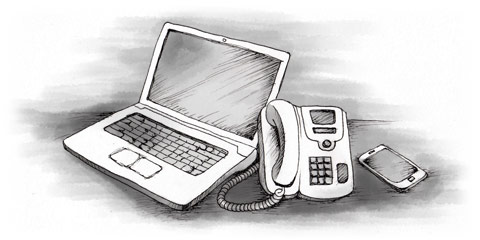Censorship and copyright infringement
When 50-70% of all internet traffic in Russia comes from BitTorrent, it’s fair to say that Russia has a problem with copyright infringement. The Russian government has substantially toughened its anti-piracy legislation, giving them extraordinary powers to censor and block websites.
One of the introductions is the Unified Register , which is a list of sites prohibited in Russia. While foreign providers and foreign Russian-language sites are not subject to this Unified Register, it is a major clampdown on russian internet websites are allowed to publish, with the government insisting that hundreds of websites be blocked by internet service providers.
At the same time, the Yarovaya Law was introduced, ordering all internet and mobile providers to store all information collected from users for up to 6 months.
Cybercrime
The obstacles to entering underground industry in Russia are minimal. Anyone who wants to start a business involving cybercrime will easily find companions and resources on various hacker forums . The market is becoming more and more professional through automated sales procedures and a remarkable splitting of responsibilities and labour functions.
With all sorts of personal information for sale on underground websites, the traffic is reported to be quite high. Security researchers have discovered about 80 Russian community forums with active members of between twenty and hundreds of thousands.
Despite the recent legislative changes, it has been suggested that Russian officials tend to turn a blind eye to cybercrime as long as activities do not target governmental institutions, or, even agree to help various security services.


